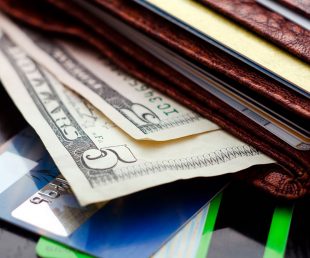How to Create a Budget that Works for You — Even in a Crisis
Americans continue to grapple with the financial uncertainty caused by the COVID-19 pandemic. As the unemployment rate overcomes historic highs and businesses struggle to stay open, it
Even before the pandemic, a recent poll showed only 25% of Americans believe that everyone should have a budget, while almost half the U.S. population has nothing saved. What’s more, around half of U.S. households live paycheck to paycheck. It turns out that we aren’t that great at saving, budgeting, financially planning, but we’re experts at spending.
This data makes one thing abundantly clear: you’re not alone in your budgeting struggles. The good news is that, by practicing good financial habits, you can learn to stick with a budget that not only allows you to reach your current goals but also plan for future crises.
Set Short-Term Budget Goals
Many people associate budgeting with long-term goals like buying a house, having kids, or retiring. During a financial crisis, however, those big picture goals may be less important. If you need a budget that keeps your family afloat right now or helps build a nest egg for future emergencies, such as a pandemic, it’s important to set short-term goals. These can help you navigate the next few months or year, as you develop healthy financial habits that bring you to your long-term goals.
If your first priority is to weather the current crisis, building an emergency fund is key. If you’re still generating income — even unemployment benefits — a good strategy is to funnel a percentage of your income into a savings account. Be sure to choose an amount that works best for your income, as it eliminates the chance you’ll dip into it too soon.
You may also set a goal to pay off one of your credit cards or set aside money to take your family on a dream vacation. These attainable short-term budgeting goals will bring healthy financial habits into practice and give you the confidence to keep going.
Know How Much You Actually Make
It’s important to know your exact current income, as it helps you determine how much your budget allows. Make sure you’re thinking beyond your salary and including all avenues of income you take home every month. This includes your money-making side gigs, stock dividends, and investment royalties.
If you recently experienced a job loss or reduced your work hours, you’ll need to find new ways to generate income. You can apply for unemployment benefits or an EBT card, which aids your grocery expenses. If you’re willing or able to work, you may also consider getting another job. Right now, grocery stores and delivery services need workers, and getting another job or taking on a side hustle can help you earn extra money.
Cut Down on Non-Essential Expenses
In order to create a budget that works for you in a financially vulnerable time, you may need to cut expenses. This means separating essential expenses from ones you can do without.
Your essential expenses are costs you need to continue paying no matter what. These include:
- Rent or mortgage
- Groceries
- Utilities
- Insurance
- Loans
Note that many banks and credit card companies are currently offering paused payments and payment plans during the pandemic. It may be wise to call to discuss your options before factoring these payments into your essential category.
From there, you can begin to look at cutting non-essential costs in your budget. These include:
- Clothing
- Streaming subscriptions (Netflix, Spotify, Audible)
- Dining out
- Entertainment
- Personal care
In looking at where you can cut these variable expenses, you may be able to free up a savings budget. For instance, paring your many streaming services to just one (at least for now) can help you reduce spending without realizing it. That way, you can funnel your saved cash toward paying off past-due bills or building your emergency fund.
Keep Track of What You Spend
Tracking your spending is the best way to spend strategically. Buying a latte or ordering takeout on a busy night can add up faster than you realize. Finding a way to keep track of every expense can allow you to evaluate every purchase and reduce unnecessary spending.
You can start by creating a personal spending spreadsheet. If the thought of keeping every receipt makes you cringe, however, there’s a world of savvy budgeting and tracking apps like PocketGuard, Mint, Wally, and Clarity Money, which track each expense for you. Alternatively, Santander’s mobile banking app and guide to budgeting can also help you understand spending.
Some apps also let you set alerts when bills are due so your monthly costs don’t sneak up on you.
If you need extra support, consider finding a budget buddy or reaching out to a financial advisor that can help you stay on track and provide you with more resources.
Moving Forward
At the beginning of 2020, you may have considered starting a budget plan to save for a much-needed family vacation. Instead, the COVID-19 pandemic may have upended your personal finances, and you just need a budget to stay afloat. Take a deep breath, consider all your options, and draft a budget that works best for you and your most immediate needs.
![]()


